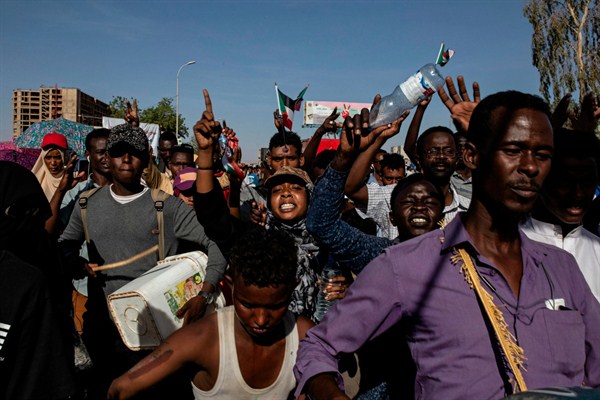Sudan has experienced more change in the past week than in the previous three decades under President Omar al-Bashir, who was deposed in a coup d’état on April 11 following four months of mass protests. Many Sudanese, however, have had little time to savor the euphoria of Bashir’s departure. Their most immediate task is to preserve and protect their revolution from the military leaders they fear will subvert it.
Protesters have had some initial success, rejecting the self-appointed head of the new transitional military council, Lt. Gen. Ahmed Awad Ibn Auf, who was considered unacceptably close to the old regime. He stepped down after only one day, replaced by a more palatable military figure, Lt. Gen. Abdel-Fattah al-Burhan.
But even bigger challenges lie ahead. The revolutionaries in the streets must somehow try to engineer a smooth transition from military to civilian rule that will put Sudan on a path toward peace, prosperity and democracy. That challenge is compounded by the reality that their movement’s leaders—the people who first organized the mass protests months ago—are political novices who find themselves trying to wrest the country away from the grasp of canny, determined military men and former regime insiders who have little interest in breaking the existing structures of power.

